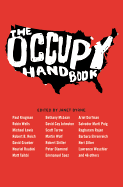 Ralph Nader just recommend a book from one of our favorite publisher as summer reading. Here is what he had to say:
Ralph Nader just recommend a book from one of our favorite publisher as summer reading. Here is what he had to say:
Get Up, Stand Up: Uniting Populists, Energizing the Defeated and Battling the Corporate Elite by Bruce E. Levine, Chelsea Green, 2011. Going beyond the how-to-become-active civic handbook, Levine, a clinical psychologist invites us to explore what he calls the “learned helplessness” that has “taken hold for a great many Americans…locked into an abuse syndrome in which revelations about their victimization by a corporate-government partnership produce increased anesthetization rather than constructive action.” The author, citing historian Lawrence Goodwy, then shows many ways toward “individual self-respect” and “collective self-confidence,” the “cultural building blocks of mass democratic politics.”



